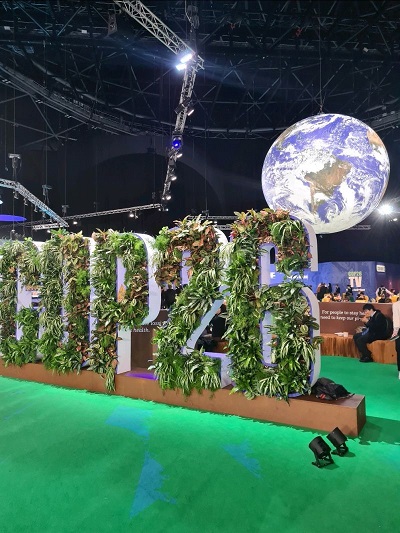16 November 2021
COP26 negotiations will overrun the 12 Nov scheduled close date. This is not unusual, as many previous COPs have done, reports Karl Flowers, Technical Editor of Authenticate and the Sustainable Leather Foundation from Glasgow.

COP26 has had to sandwich 3 years of decisions into 2 weeks due to the Covid pandemic (Parties cannot agree unless they are present in the room).
The major action this year was to get the Parties to agree commitment and actions (including funding) in how the Parties can meet the Paris objectives and to sign off the Paris Agreement Rulebook. Keeping warming under 1.5 (and 2.0) degrees were both mentioned in Paris, but most actors in Glasgow are committed to 1.5 degrees.
The governments of countries are part of the negotiations (as Parties) as they generally hold the means to achieve the aims of the global citizens. The activists outside affect the negotiators through the pressure, media, and emotional passion they bring to the talks. Inside, the non-governmental organisations, assemble into constituencies and have bilateral talks with negotiators. The negotiators (in teams) stick to working on the draft documents, having bilateral talks with constituency (and other observers), attending side event information discussions, and attending the impressive Blue Zone pavilions (countries, industries, and lobby groups).
The governments, particularly the host country, rapidly consult with allies, decide finance and actions, and announce (sometimes as multilateral petitions) pledges to these actions. This year’s major pledges have included: coal reductions, methane mitigation, major finance to support vulnerable communities, zero deforestation, electric vehicles, and 2030 and 2050 carbon targets.
The major sticking point in Week 2 of the negotiations has been something called Article 6, cover announcements, and finance arrangements. As you can imagine changing the world to meet these commitments are going to cost trillions of dollars – so these issues become less environmental and more development issues. A poor person cannot think about their air travel plans if they are focused on the grumbling in their bellies when hungry.
Was this year able to satisfy the list of problems the activists outside the gates had? No.
Was the negotiations able to satisfy the list of demands the constituencies inside the gates had? There are winners and losers.
Were the Parties able to solve the long list of things needed to meet all the requirements of guaranteeing a world that can stay below 1.5 degree warming? They did the best considering Parties current positions.
Negotiations means compromise, you have to give to proceed. You have to politic, lobby, and discuss/debate with those sticking on positions – a far cry from the demand-culture from those outside the gate. The views of all those debating have to be heard and are prioritised to how they can achieve the greater goals. This often means softening your position to save the world. A valuable lesson for the leather industry.
Here is the BBC report after the final negotiations at COP26 in Glasgow: https://www.bbc.com/news/live/world-59279558
我们为皮革、物料及时装业界创造面对面洽谈的机会,为客户缔造实质商机。我们云集世界各地的商家,让他们寻找新的合作伙伴,发掘潜在客户或供应商,并掌握业界最新发展。
我们主办多个专注时尚及生活潮流的商贸展览会, 为这不断变化的行业,提供最全面的买家及参展商服务,方便他们了解急速转变的行业环境,并预测来季趋势。

使用条款 | 隐私政策 | APLF 可持续发展